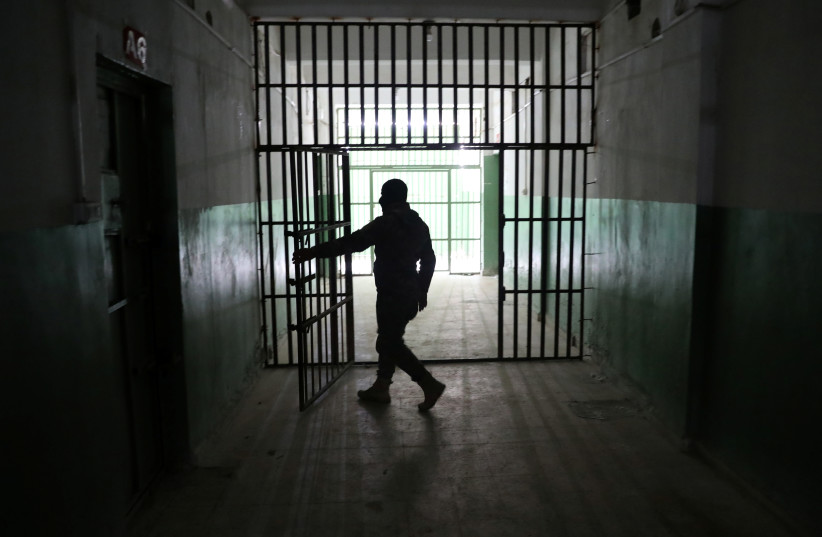A new ordinance will allow the Israel Prison Service (IPS) to administratively release 120 inmates on Friday in order to combat ongoing overcrowding issues, the IPS spokesperson said on Thursday.
Administrative releases are done once a year if the amount of prisoners exceeds the standard for inmate population in the correctional facilities. In mid-August there were 16,100 prisoners and detainees held by the Prisons Service, and the IPS said Thursday that it would not be changing its limit of 15,500.
The July 24 ordinance amendment would allow for the administrative release of those with a prison term that exceeded 18 months, but no more than 36 months. Sex offenders and security prisoners were not eligible for administrative release, said National Security Minister Itamar Ben-Gvir. Even those security prisoners that only threw stones, Molotov cocktails, or failed to cause harm would be excluded.
“In a normal country, those who commit a security offense do not get early release even if they did not commit murder!” said Ben-Gvir. “My policy is to get tough with terrorists.”
Which prisoners were excluded from these measures?
The Adalah Legal Center for Arab Minority Rights in Israel, Al Mezan Center for Human Rights and the Association for Civil Rights in Israel (ACRI) filed a petition to the Supreme Court on Thursday against the exclusion of security prisoners from administrative release.
The petition filed on behalf of three Palestinian security prisoners claimed that the ordinance was discriminatory, leaving the clients in prisons while conditions rapidly deteriorated.

“This law marks another escalation of discriminatory, severe, and oppressive actions against Palestinian prisoners," said Adalah Attorney Rabea Eghbariah. "The government that initiated this illegitimate law is acting knowingly and deliberately, in contradiction to basic laws and in violation of international legal principles. This governmental action aligns with the state's ongoing efforts to deepen and solidify a system of apartheid in imprisonment that is based on Jewish supremacy. Therefore, we demand its immediate repeal.”
IPS said that it was continuing to search for solutions to the overcrowding problems, and to ensure that detainees and prisoners had proper living arrangements. The agency noted that in mid-August it had issued a freeze of prison renovations to allow 200 inmates to reside in the wings under construction. Other construction projects would continue to create new housing.
The extent of the overcrowding issue came to light with a letter by Public Defender Anat Meyassed-Cnaan to National Security Minister Itamar Ben-Gvir (Otzma Yehudit) on August 9.
Almost half of all inmates lacked basic space conditions. In one prison, detainees and prisoners were being kept in the same wings in violation of the law.
In 2022, to counter the lack of prison space, detainees were being housed in police stations, which were ill-suited for long detentions. These stations often lack beds, mattresses, toilets, and showers, and officers aren't able to provide consistent access to food, water, toiletries, and clothing.
The IPS said that it had ended this practice in December 2022, but resume it in 2023, said Meyassed-Cnaan.
